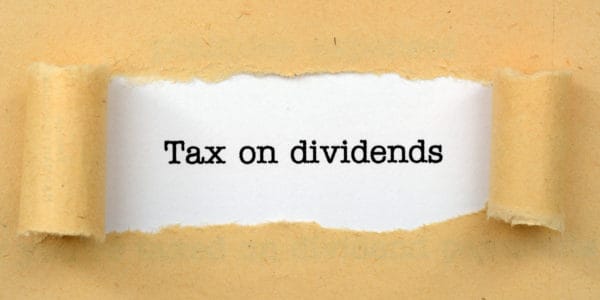Business rates are a type of property tax that local councils charge to the occupiers of commercial premises and other buildings used for non-domestic purposes. The rate you pay is based on the property’s official ‘rateable value’. Under certain circumstances, you may also have to pay business rates for a home-based business.
We explain business rates in detail below, including who needs to pay, how they are calculated, and when your rates might change.
The information provided applies to properties in England and Wales – there are different systems in place for properties in Scotland and Northern Ireland.
What are business rates?
Sometimes referred to as commercial rates, business rates fall into the category of property tax, and help to pay for local council services. These rates are payable on non-domestic premises, in the same way that Council Tax is payable on residential properties.
Most non-domestic premises attract business rates when they are occupied, including:
- retail units (i.e. shops)
- offices
- pubs and restaurants
- cafes and coffee shops
- salons (e.g. hair, beauty, massage)
- gyms and studio spaces (e.g. creative arts, leisure, and recreation)
- warehouses
- factories
- auto repair garages
- hotels, guest houses, and holiday rental homes
- beach huts
- stables
You might also have to pay rates if you use a residential building (or part of it) exclusively for business purposes. This includes your home.
Business rates for home-based businesses
Business rates are unlikely to apply to your home-based business if you sell goods by post (i.e. an e-commerce business) or only use one of the rooms in your home as an office or workspace.
However, you may have to pay business rates in addition to Council Tax in the following situations:
- the property is part residential and part commercial – e.g. you live in a flat above your shop
- you sell goods or services to customers who visit your property
- you have employees who work from the property
- the property has been altered to accommodate the business – e.g. you converted your garage into a workshop or hair salon
It depends on the degree to which the property is used for non-domestic purposes, and whether the Valuation Office Agency (VOA) assigns a rateable value to any part of your home.
Business rates in Scotland and Northern Ireland
Business rates are handled differently in Scotland and Northern Ireland.
If your property is in Scotland, you will pay non-domestic rates. These are set by the Scottish Government and collected by local councils. A local assessor from the Scottish Assessors Association (SAA) will work out if you need to pay and, if so, what your rateable value is.
If your property is in Northern Ireland, you will pay district and regional business rates. Set each year by the Northern Ireland Executive and the district councils, your rates will be worked out and collected by Land & Property Services (LPS).
Do all businesses pay business rates?
Most businesses occupying commercial premises or mixed-use properties are required to pay business rates. However, some non-domestic properties and certain home-based businesses are eligible for exemption.
It doesn’t matter whether you operate your business as a sole trader, a limited company, or some type of partnership structure. Your liability to pay rates depends on the premises that your business occupies and how you use that property.
Properties that are eligible for exemption from business rates include:
- agricultural land and buildings, unless they are used for non-agricultural purposes
- buildings used wholly or in part for the training or welfare of disabled people
- properties registered as places of public religious worship, including church halls that are used for religious purposes
Some businesses can also apply for business rates relief, which provides a reduction in the amount they have to pay. Examples of those who may be eligible for relief include:
- small businesses
- charities and not-for-profit organisations
- retail, hospitality, and leisure properties
- a business that is the only one of its type in a small rural area (e.g. a local shop or pub)
- local newspapers
- commercial properties that are empty, partly empty, or undergoing refurbishment
- businesses experiencing financial difficulty
- properties situated in an Enterprise Zone
- premises that are temporarily affected by severe disruption (e.g. flooding, fire, nearby construction work, or roadworks)
Additionally, local councils may offer rates relief to your business if it benefits the local community or economy.
How are rates calculated?
Business rates are based on your property’s annual ‘rateable value’, which is calculated by the Valuation Office Agency. A range of factors are taken into consideration, including use, location, age, and (most importantly) the size of the property.
The rateable value is the estimated ‘open market annual rental value’ of the property at a set point in time. Basically, it is an estimate of how much it would cost to rent the property for a year, based on rental values of comparable properties at a certain date.
Business rates are then calculated by taking the property’s rateable value and multiplying it by either the ‘standard multiplier’ (51.2 pence) or the ‘small business multiplier’ (49.9 pence).
The standard multiplier applies if your property’s rateable value is at least £51,000. The small business multiplier applies if the rateable value of your property is less than £51,000.
Example 1
You have a commercial property in England with an annual rateable value of £55,000, so you use the standard multiplier to estimate your business rates.
In this example, the calculation is £55,000 (rateable value) x £0.512 (standard multiplier) = annual business rates of £28,160.
Example 2
You have a commercial property in England with an annual rateable value of £14,000, so you use the small business multiplier to estimate your business rates.
In this example, the calculation is £14,000 (rateable value) x £0.499 (small business multiplier) = annual business rates of £6,986.
Since the rateable value is less than £15,000, you may also be eligible for small business rate relief to further reduce your bill.
There are different multipliers if your property is situated in Wales or within the City of London.
You can use GOV.UK’s online services to find a business rates valuation of a property situated in England or Wales and estimate your business rates bill.
If you have any questions about your rateable value or think that it may be wrong, you should contact the Valuation Office Agency.
How and when do I pay my bill?
You will receive a business rates bill from your local council each year, usually in February or March. Your bill will set out your rates (less any relief) for the following tax year. You will pay it in 10 equal instalments, like you do with Council Tax.
Most businesses set up a monthly Direct Debit, but you can also pay your bill online or by phone using a debit or credit card.
If you have any questions about your business rates bill, business rate relief, or how to pay, you should contact your local council for help.
Small business rate relief
You can apply to the council for small business rate relief if your property has a rateable value of less than £15,000 and your business only occupies one property. However, in some cases, you may still be eligible for relief if you use a second property.
The amount of relief you are entitled to depends on the rateable value of your premises. If it is £12,000 or less, you won’t pay rates if it is the only property that your business uses.
If the rateable value is between £12,001 and £15,000, the rate of relief will reduce gradually from 100% to 0%. For example:
- If your property has a rateable value is £13,500, you will get a 50% reduction (£6,750) on your bill
- If it has a rateable value of £14,000, you will get a 33% reduction (£4,620) on your bill
When using more than one property for business purposes, you will continue to receive small business rate relief on your main premises for 12 months. Thereafter, you will only be eligible for relief on the main property if:
- none of your other premises have a rateable value in excess of £2,899, and
- the combined rateable value of all of your properties is less than £20,000 (or £28,000 in London)
If your small business does not qualify for small business rate relief, you will still benefit from the small business multiplier if the rateable value of your property is below £51,000.
Contact your local council to find out if you are eligible for small business rates relief, how to apply, and whether you are entitled to any other types of rates relief.
When your business rates might change
There are a number of situations that may result in changes to your property’s rateable value and business rates, such as
- carrying out alterations to the property
- moving to new premises
- changing the nature of your business (i.e. what your business does)
- subletting part of the property
- merging two or more properties into one
You must report any changes to the Valuation Office Agency through your business rates valuation account. This is to ensure that you are paying the correct amount and don’t end up with the backdated increase in your rates bill.
Revaluation of properties
Rates also change periodically when properties undergo a revaluation. The VOA usually reassesses and updates rateable values every six years to reflect changes in the property market. This ensures that business rates are based on up-to-date open market annual rental values.
The most recent revaluation of non-domestic properties came into effect on 1 April 2023, based on open market rental values from 1 April 2021. This fixed date of valuation is known as the Antecedent Valuation Date (AVD) and it’s usually set exactly two years before the VOA compiles new non-domestic ratings lists.
Getting help with business rates
If you need any help with business rates, you should get in touch with either your local council or the Valuation Office Agency.
Contact your local council if you have any questions about:
- your business rates bill
- rates relief and whether you are eligible
- paying your bill
Contact the Valuation Office Agency if you want to:
- find out the rateable value of your property
- compare it with other similar properties
- check how your rates were calculated
- report any changes to your property, or if you move to new premises
- challenge the rateable value of your property
- submit information about your rent and lease arrangements (if asked to do so)
You can also use your business rates valuation account to find out certain details and send information to the VOA.
Thanks for reading
Understanding business rates and knowing how much you might have to pay will give you greater control over your small business budget and cashflow.
There are so many costs to take into consideration when you’re setting up a new business, so it’s important to be aware of how much you need to set aside for rates on your new premises.
Please comment below if you have any questions. Be sure to check out our other blog articles for more business-related advice and company formation guidance.
Please note that the information provided in this article is for general informational purposes only and does not constitute legal, tax, or professional advice. While our aim is that the content is accurate and up to date, it should not be relied upon as a substitute for tailored advice from qualified professionals. We strongly recommend that you seek independent legal and tax advice specific to your circumstances before acting on any information contained in this article. We accept no responsibility or liability for any loss or damage that may result from your reliance on the information provided in this article. Use of the information contained in this article is entirely at your own risk.














Join The Discussion